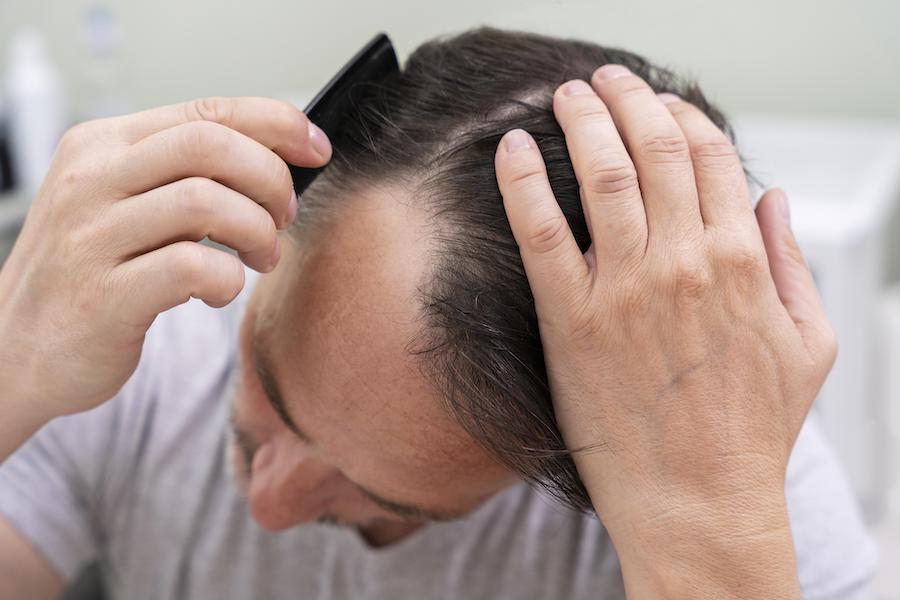Hair thinning is a common concern for both men and women, and it can be a deeply frustrating experience. Whether you're noticing a gradual decrease in volume or struggling with visible patches of thinning hair, you're not alone. Many individuals seek out a Hair Specialist Doctor in Dubai to understand the root causes and potential solutions for their thinning hair. Understanding why hair thinning happens and how to address it can help you regain confidence and boost your self-esteem. In this article, we’ll dive into the causes of hair thinning and explore effective treatments that can make a difference.
The Common Causes of Hair ThinningBefore diving into the solutions, it’s important to first understand what’s behind hair thinning. There are several factors that can contribute to the loss of hair, and identifying the right one for your situation is crucial to finding the best treatment. 1. Genetics and HeredityOne of the leading causes of hair thinning is genetics. Male-pattern baldness (androgenetic alopecia) and female-pattern baldness are hereditary conditions that result in thinning hair over time. If your family has a history of hair loss, it’s likely that you might experience a similar issue as you age. This type of hair thinning generally starts at the crown or temples, progressing gradually. 2. Hormonal ChangesHormonal changes can significantly impact your hair's health. For women, this can happen due to pregnancy, childbirth, menopause, or the use of birth control pills. During these stages, the body undergoes dramatic hormonal fluctuations that can cause the hair follicles to enter a resting phase, leading to shedding. Similarly, in men, changes in hormone levels can also lead to thinning hair, particularly the hormone dihydrotestosterone (DHT), which is known to shrink hair follicles. 3. Nutritional DeficienciesHair health is closely linked to what we eat. Deficiencies in key nutrients like iron, vitamin D, biotin, and zinc can result in hair thinning. Poor nutrition, dieting, or restrictive eating habits can contribute to hair loss by depriving your body of the essential vitamins and minerals needed to maintain healthy hair. 4. Stress and Lifestyle FactorsStress is a significant contributor to hair thinning. When your body is under stress, it can lead to a condition known as telogen effluvium, where a large number of hair follicles prematurely enter the resting phase, causing hair to shed. A lack of sleep, excessive caffeine consumption, and an unhealthy lifestyle can all exacerbate stress levels, leading to further hair thinning. 5. Medical ConditionsCertain medical conditions, such as thyroid imbalances, autoimmune diseases like alopecia areata, and scalp infections, can trigger hair loss. Medications and treatments for other health issues, including chemotherapy, can also lead to hair thinning or hair loss as a side effect. How Can Hair Thinning Be Fixed?Now that we know what causes hair thinning, let’s discuss how you can address this issue. While the treatment will depend on the underlying cause, there are several approaches that can help restore your hair’s thickness and volume. 1. Topical TreatmentsMinoxidil, commonly known by its brand name Rogaine, is one of the most widely used treatments for hair thinning. It’s available over-the-counter and can help stimulate hair growth in both men and women. Applying minoxidil regularly to the scalp has shown positive results in regrowing hair or slowing down the progression of hair loss. 2. Prescription MedicationsFor more severe cases, prescription medications like finasteride (Propecia) can be used to prevent hair loss and encourage regrowth. This medication works by blocking DHT, the hormone responsible for shrinking hair follicles. However, it is important to consult with a healthcare provider before starting any medication to determine if it’s the right choice for your specific situation. 3. Hair Restoration TreatmentsIf you’re looking for more permanent results, advanced hair restoration treatments like hair transplants can be effective. These procedures involve moving healthy hair follicles from one part of your scalp to another where thinning is occurring. Although this can be a more invasive solution, many people see dramatic improvements after undergoing such treatments. 4. Healthy Diet and SupplementsMaintaining a balanced diet rich in vitamins and minerals plays a vital role in preventing and reversing hair thinning. Foods high in biotin, vitamin D, iron, and omega-3 fatty acids can promote hair health. Additionally, taking hair supplements that are designed to nourish hair from the inside can make a noticeable difference in hair thickness. 5. Stress Management and Lifestyle ChangesManaging stress through relaxation techniques, yoga, and regular exercise can significantly improve the condition of your hair. Reducing stress not only helps prevent further thinning but also promotes healthier, more resilient hair growth. Ensuring you get adequate rest and proper hydration can also improve your hair's overall health.
6. Scalp TreatmentsScalp health is equally as important as the health of your hair. Regular scalp massages, using products designed to nourish the scalp, and keeping the scalp clean can promote better circulation, which in turn supports hair growth. There are various serums and oils available that are formulated to strengthen hair follicles and improve overall hair health. ConclusionHair thinning can be distressing, but it doesn’t have to be permanent. Understanding the root cause of your thinning hair and seeking out appropriate solutions can help you regain fuller, healthier hair. Whether it's through topical treatments, medications, or lifestyle changes, there are numerous ways to combat thinning hair. If you are unsure about what’s causing your hair thinning, consulting a Hair Specialist Doctor in Dubai could provide you with valuable insights and guide you toward the best treatment options for your specific needs. | |
|
| |
| Views: 16 | |
| Total comments: 0 | |

